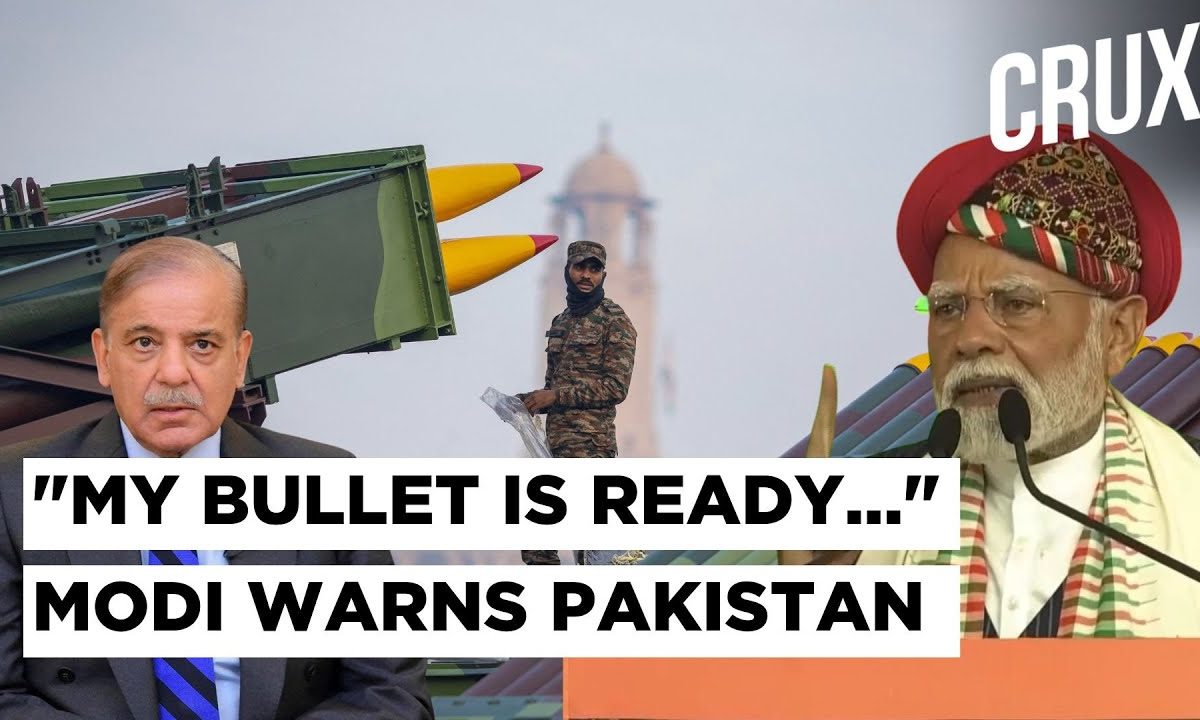

Amidst heightened tensions between India and Pakistan, Indian Prime Minister Narendra Modi has taken a strong stance, asserting India's readiness to retaliate against terrorism emanating from Pakistan. This comes even as Pakistani Prime Minister Shehbaz Sharif, during a visit to Iran, has offered peace talks with India, including discussions on the Indus Waters Treaty.
PM Modi, addressing a rally in Bhuj, Gujarat, following the launch of development projects, delivered a stern message to Pakistan. He stated that while India desires peaceful relations, it will not hesitate to respond decisively to any act of terror. Modi emphasized that the onus is on the people of Pakistan to eradicate terrorism from their country, urging the youth to come forward and take charge. He also added, "Sukh chain ki zindagi jiyo, roti khao, warna meri goli to hai hi (live a life of peace and eat your roti in calm, or else, my bullet is always ready)."
These remarks follow India's "Operation Sindoor," a large-scale strike conducted by the Indian armed forces in response to the deadly Pahalgam terror attack that claimed the lives of 26 people. Modi described the operation as "a mission to save humanity and end terrorism," highlighting that India waited for 15 days, hoping for Pakistan to take action against the perpetrators. However, with no action from Pakistan, India proceeded with the strikes, reducing nine terror bases to dust in 22 minutes.
PM Modi has also taken a dig at Pakistan, stating that their airbases are "still in ICU" due to the strength of India's response. He lauded the valor of the Indian forces, which he said, led Pakistan to wave the white flag. Modi contrasted India's focus on tourism, which connects nations, with Pakistan's alleged reliance on terrorism, which he deemed dangerous for the world.
In contrast to PM Modi's aggressive rhetoric, PM Shehbaz Sharif, during his visit to Iran, has expressed Pakistan's willingness to engage in peace talks with India. According to PTV News, Sharif was received at Tehran's Mehrabad airport by Iranian Interior Minister Eskandar Momeni and senior diplomatic officials.
Pakistan has, however, refuted PM Modi's accusations of supporting terrorism. The Foreign Office has rejected the "baseless, provocative, and irresponsible allegations" made by the Indian Prime Minister. They stated that these remarks are aimed at stoking regional tensions for narrow political gains and violate the norms of responsible statecraft. Pakistan maintains that it is committed to peaceful coexistence, regional stability, and constructive engagement.
The recent events have led to heightened tensions between the two nations. Following the strikes and escalating tensions, the Board of Control for Cricket in India (BCCI) decided to suspend the ongoing Indian Premier League (IPL) season for one week, prioritizing national security.
The international community has expressed concern over the situation, with some offering to mediate between the two countries. However, India has maintained that any dialogue with Pakistan must be based on Islamabad taking concrete steps to address terrorism.
The situation remains tense, with both sides adopting contrasting approaches. While PM Modi has asserted India's readiness to use force against terrorism, PM Sharif has offered peace talks. The coming days will be crucial in determining whether the two nations can find a path towards de-escalation and peaceful resolution of their differences.